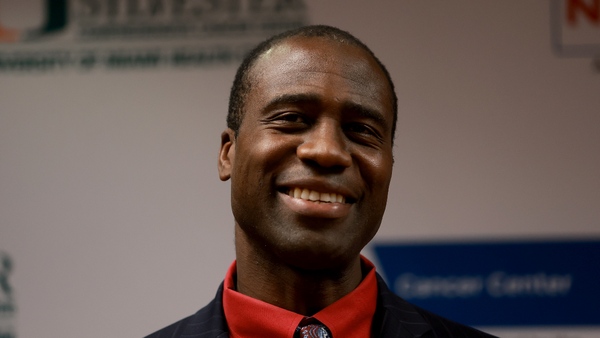William Ruto has been declared the winner of Kenya’s presidential election, amid last-minute chaos as four senior election officials denounced the week-long count and disowned the result.
Official results showed that Ruto, the current deputy president, won 50.5% of the vote, beating the longtime opposition leader Raila Odinga and narrowly avoiding a run-off.
But chaos erupted minutes before the results were announced, with four out of seven electoral commissioners saying they disowned the outcome, which they termed “opaque”.
“We are not able to take ownership of the results that will be announced,” said the deputy chair of the electoral commission, Juliana Cherera.
The sudden declaration prompted fears that vote-rigging allegations could lead to a legal challenge or even deadly violence like the country witnessed after 2007 and 2017 presidential polls. Cherera tried to allay concerns by advising those involved to take their complaints to court.
The 55-year-old president-elect later issued a conciliatory message, vowing to work with “all leaders”. “There is no room for vengeance,” said Ruto. “I am acutely aware that our country is at a stage where we need all hands on deck.”
As news of the results filtered through to Odinga’s stronghold of Kisumu, there were some outbreaks of violence. In one area, protesters congregated on a roundabout, throwing stones, setting tyres on fire and throwing up roadblocks with broken rocks.
“It was not free and fair. We were cheated,” Collins Odoyo, 26, an Odinga supporter, told AFP.
Some international analysts suggested that the commissioner’s move might be politically motivated because the four commissioners criticising the vote count as opaque were appointed by the outgoing president Uhuru Kenyatta late last year. “Their intervention smacks of political interference from the Raila Odinga camp,” said Benjamin Hunter, an Africa analyst with Maplecroft, a UK-based consultancy.
Kenyatta had backed Odinga after falling out with Ruto. Odinga and Kenyatta come from two of Kenya’s wealthiest and influential families.
Kenyatta’s endorsement was expected to draw in support for Odinga from the Kikuyu community, which held a critical number of votes in the election. But Odinga’s community, the Luo, have been at political odds with the Kikuyu for decades, and a reconciliation between the two after a long rivalry was ultimately not enough to bridge the divide.
In the Kikuyu heartlands, Ruto swept the vote with his appeal to Kenyans on economic terms and not only traditional ethnic ones. “Ruto’s populist tenor convinced Kikuyu voters angry at the flatlining economy and Kenyatta’s alliance with Odinga to side with him,” Hunter said.
Despite the chaos surrounding the announcement, celebrations briefly broke out in parts of the country, including Kayole, a residential neighbourhood in Nairobi where Ruto and Odinga both have some support.
Ruto’s supporters were eager to see the self-proclaimed “hustler” rise to the country’s highest office from his humble beginnings selling chickens by the roadside.
“He started from the very bottom and has kept rising up, so it makes us hopeful that he will empower Kenyans at the bottom, because he knows what it’s like to face problems,” said Miriam Wangeci Karuga, 36, an informal worker in Nairobi.
Shadrach Ouma, 33, a doctor and Odinga supporter from Embakasi North, said before the announcement that he would be ready to accept any outcome if won fairly. “The country belongs to all of us, so we’ll just continue to coexist peacefully with our neighbours and focus on building the country.”
The election was largely peaceful, but analysts said the election officials’s move to disown the results may throw the country into an old pattern. Kenya’s last three elections have been contested, with a 2017 poll rerun, and a dispute in 2007 leading to deadly post-election violence.
Hunter said: “The sentiment that Raila has been cheated yet again will intensify anger in his Nyanza stronghold and spark protests in the coming days.”
The last-minute divide among the electoral officials was unexpected. Trust in the electoral commission had received a significant boost in this election after it made all voter forms publicly available, opening them up to independent counts by the media and the public.
On the back of Monday’s events, Odinga may contest the results in court, in what is likely the opposition figure’s last bid for the presidency.
“Kenya faces up to three treacherous weeks of uncertainty if Odinga files a petition with the supreme court, as he did in 2013 and 2017,” Hunter said. “Odinga has a week to file a challenge to the result and the court has two weeks to decide, casting an already delayed outcome into further suspense.”
If the electoral commission’s announcement holds, Ruto will take over the reins of the country at an economically turbulent time. Kenya’s inequality has been laid bare by a cost of living crisis that has been fuelled by the Covid pandemic and Russia’s war in Ukraine. Rising prices of basic commodities have left many Kenyan households struggling and placed the country’s staple food ugali (thick maize flour porridge) out of reach for many of the country’s poor.
“The incoming president is in an unenviable position,” said XN Iraki, a Kenyan economist. Pointing to some of Ruto’s campaign promises, such as a pledge to set up a fund for small businesses, he said: “It is not clear where that money will come from.”
Kenya is saddled with public debt of more than 8.5tn shillings (£55bn) and is due to spend more on debt repayments than on recurring expenditure this year.
“People have been waiting for the results so that they can get back to work. Kenyans have come to realise that whichever way it goes, they are still on their own,” Iraki said.
• This article was amended on 16 August 2022 to remove part of a quote that incorrectly said the four commissioners criticising the vote count as opaque were appointed by the outgoing president Uhuru Kenyatta in 2018. Those appointments were in 2021.







